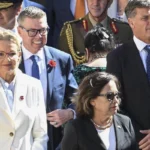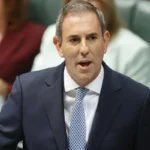Without the support of a whistleblower protection authority, too many whistleblowers remain silent, to the detriment of our democracy.
Imagine finding something amiss at work: irregularities in project numbers as a public servant or discovering an oil spill’s environmental impact while working for a resources company.
While almost every Australian worker is covered by whistleblower protection laws, these laws are fragmented and contain loopholes. Nonetheless, their purpose remains crucial: providing protection to those who report wrongdoing. However, once individuals identify potential misconduct, they lack guidance and support, highlighting a critical gap in Australia’s integrity framework.
David McBride’s recent case exemplifies this gap, where he pleaded guilty due to the absence of sufficient support for whistleblowers. Without a dedicated whistle-blowing body, many are deterred from speaking up, ultimately undermining our democracy.
Calls for a whistle-blowing agency date back to the early 1990s, with recommendations for its establishment alongside federal whistle-blowing laws. Despite bipartisan support and commitments, such an authority has yet to materialise. The current government is only considering the idea, delaying much-needed reform.
A dedicated whistle-blowing body is urgently needed, especially given recent declines in transparency and integrity in government. Instances of journalists being raided, whistleblowers prosecuted, and trials shrouded in secrecy have created a chilling effect on speaking up.
As a lawyer for whistleblowers, I witness this fear daily among clients. A whistle-blowing authority could reverse this trend and demonstrate Labor’s commitment to integrity.
Consider the scandals currently plaguing the government, from war crimes in Afghanistan to mistreatment in aged care and the controversies surrounding major consulting firms and robodebt. Stronger whistleblower protections are crucial to addressing these issues.
For instance, had whistleblowers been protected, robodebt may have been prevented. Jeannie-Marie Blake, a courageous public servant who spoke out, believes an independent whistle-blowing body would empower more individuals to report wrong- doing.
A whistle-blowing authority is the cornerstone of integrity architecture, facilitating the exposure of misconduct and safeguarding whistleblowers. Therefore, organisations and MPs are advocating for its establishment.
Attorney-General Mark Dreyfus, a longstanding advocate for whistleblowers, has an opportunity to leave a lasting legacy by championing this cause. By enabling whistleblowers to speak up, a protection authority would enhance accountability, integrity, and ultimately, government effectiveness.












